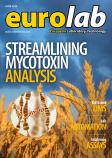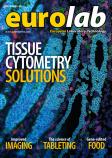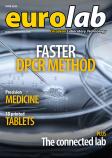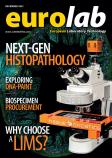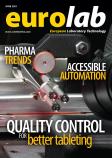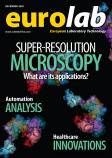Sirius is the name of the brightest star in the night sky, but also the name of the new Brazilian Synchrotron Light Source. Designed to be one of the first 4th-generation Synchrotron Light Source in the World, it will be the most complex scientific infrastructure ever built in Brazil. It is a strategic research infrastructure for cutting-edge scientific investigation and to the search of solutions for global problems, in areas such as health, agriculture, energy and the environment.
The new lab is placed in the city of Campinas, State of São Paulo, inside The Brazilian Center for Research in Energy and Materials (CNPEM). Heading the project, with the expertise of more than 23 years in synchrotron light, The Brazilian Synchrotron Light Laboratory (LNLS), associated to CNPEM, has been leading this successful project since 2008.
“The high quality of Pfeiffer Vacuum products combined with the excellent support of the representative in Brazil, guarantees us the reliability for building the beamlines without any hitches, regarding the generation of vacuum, which is the crucial point for carrying out the experiments,” says Gustavo Lorencini M. P. Rodrigues, the Scientific Instrumentation Supervisor, in charge to offer a wide variety of engineering services necessary for the operation and development of the facilities under the Beamline Engineering Division – beamlines and laboratories.
Pfeiffer Vacuum, with the support of his representative in Brazil, Avaco Tecnologia em Vácuo, is proud to supply several ACP multi-stage Roots pumps, HiPace turbomolecular pumps, helium leak detectors and customised vacuum chambers. One of the key points of a high-end particle accelerator is the vacuum. The use of clean and reliable vacuum pumps is essential to ensure a clean ultra-high vacuum and maintain it for the long term.
With a proven experience of quality and reliability, the HiPace turbopump was the choice of Sirius for the front-end installations and experimental lines. In combination with HiPace turbopumps, the ACP multi-stage Roots pumps delivered to Sirius a clean primary vacuum without the presence of hydrocarbon or particles.
The first research station to start operating at Sirius is the beamline called Manacá, dedicated to protein crystallography. Using X-ray diffraction this beamline can reveal details of the structure of biological molecules, such as viral proteins. These studies have the potential to develop drugs for the treatment of patients with COVID-19. In the next months, the Manacá beamline will be exceptionally dedicated to this matter.

